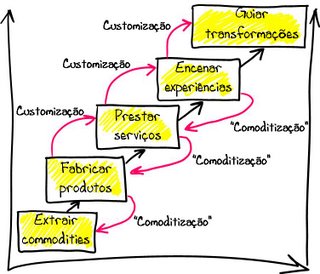"Martin Wolf alerta empresas de que deverão estar preparadas para abandonar o mercado único europeu. E explica porquê."O artigo é escrito por um inglês e perspectiva o futuro do ponto de vista das empresas inglesas.
Vejamos o mesmo tema do ponto de vista das empresas portuguesas. Segundo os números disponíveis, relativamente às exportações de bens, as exportações portuguesas para o Reino Unido representaram cerca de 7% do total. As exportações para o Reino Unido cresceram 5,6% em 2016. O Reino Unido constitui o 4º principal mercado para as exportações portuguesas.
A sua empresa exporta para o Reino Unido?
Como é que a sua empresa se está a preparar para um Brexit duro? Como vai lidar com a mudança do mundo em que opera?
Será que tem de procurar mercados alternativos?
Será que tem de adequar os produtos ou o modelo de negócio a esta nova realidade?











%2006.21.jpeg)












